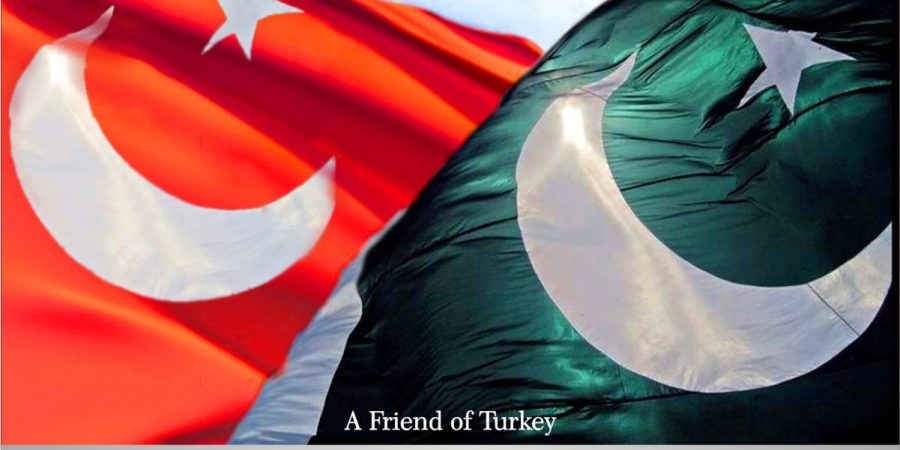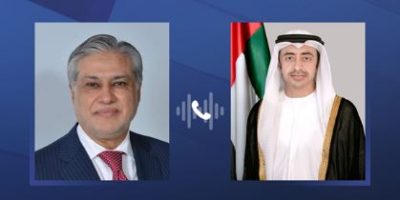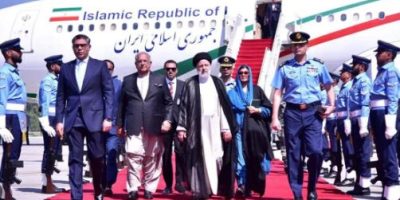WELCOME–PRESIDENT RECEP TAYYIP ERDOGAN

By Syed Ali Nawaz Gilani
Turkish President Honorable Recep Tayyip ERDOGAN is scheduled to arrive in Islamabad on 13th February 2020, the first head of a state visiting Pakistan in 2020 on a two -day official visit to Pakistan along with high profile delegation. During his visit the Turkish President would hold bilateral talks with President and Prime Minister of Pakistan. The two countries are also likely to sign a number of bilateral agreements and MoUs during the visit to boost cooperation in different fields. President Erdogan will also meet leading political figures of Pakistan apart from attending various planned events and addressing the joint session of Senate & National Assembly on 14th February 2020.
The most important part of this visit is a landmark deal for dual nationality between Turkey and Pakistan. The two countries are considering a plan to make it easier to provide dual nationality for their citizens, in what would be a significant increase in relations. Recently, this idea was came to light during a meeting between Pakistan’s Interior Minister Ijaz Ahmad Shah and Turkish Ambassador to Pakistan Ihsan Mustafa Yurdakul- a very active Turkish top diplomat having immense respect across the country. As the move was proposed by Ambassador Yurdakul. Pakistani Interior Minister Ijaz Shah responded that the draft for the law is “under consideration” and that “we hope to reach a mutual conclusion soon,”. It is expected that during this visit this matter will be discussed along with other matters related to bilateral relations including military cooperation, upgrading of equipment and training operations for law enforcement. The Pakistani Interior Ministry also welcomed the initiative of introducing a patrolling force in collaboration with ICT [Islamabad Capital Territory] Police on the model of Dolphin Force introduced in Lahore, the elite security force in Punjab province launched in 2016 and partly trained by Turkey for the purpose of tackling street crime and ensuring security around the China-Pakistan Economic Corridor (CPEC).
Under the new initiative the citizens of Pakistan and Turkey will be able to attain citizenship and dual passports of each others’ countries, it would add significantly to their already-strong relations. Earlier this month, Pakistan extended time to Turkey to deliver domestically-made T129 attack helicopters, which were delayed due to the US sanctions imposed on Turkey. In May last year, Pakistan also added Turkey to its visa-free travel list that will promote tourism and business between the two countries.
As preamble of the Turkish President visit let us go through some historical facts between the two countries. Bilateral ties between Turkey and Pakistan historically been exemplary and the two brotherly countries have never left each other stranded in times of need. Turkey has always remained a close friend of Pakistan over the years. Pakistan on the other hand is going through difficult phase of war against militancy and extremism but as a nation Pakistan has shown that it has ample capacity to rid itself of problem. In addition to political and security-related cooperation between the two countries, there is need to focus on further strengthening economic and trade cooperation.
Pakistan attaches great importance to its relations with Turkey and desires to further strengthen it through people-to-people contact. Turkey has remained a strategic partner of Pakistan and it is highly likely that this visit of the president would diversify its economic relations in all sectors of economy. Pakistan acknowledges Turkey’s contributions in war against terrorism.
Turkey has continued supporting Pakistan, as the friendship between the two countries is historic. These relations have been traditionally strong. Both nations maintain extensive cultural, commercial, strategic and military cooperation. Both Turkey and Pakistan are Muslim-majority states and share extensive cultural and geopolitical links.
Turkey established diplomatic relations soon after the independence of Pakistan in 1947 and bilateral relations became very close due to cultural, religious and geopolitical links between the two countries. Pakistan’s founder Muhammad Ali Jinnah expressed admiration for Turkey’s founding leader Mustafa Kemal Atatürk and expressed a desire to develop Pakistan on the Turkish model of modernism and secularism. Jinnah is honored as a great leader in Turkey, and a major road of the Turkish capital Ankara, the Cinnah Caddesi is named after him, while roads in Islamabad, Karachi,Lahore, and Peshawar, are named after Atatürk as a gesture of love and attachment of both nations with each other.
The sentiments of brotherhood that Pakistanis have for people of Turkey have their roots in history. This history of Pak-Turkish relations is a story of concern and cooperation .They have been friends and supported each other in time of war and peace. The story of their friendship is spread almost over a century. When the institution of Khilafat has occupied a very important place in the history of Islamic peoples.
As the year 1947 is to be known as very crucial period in the history of the world, on one hand the old order started crumbling with the partition of Europe in two separate spheres. On other side when Indian subcontinent was divided into two independent states of Pakistan and India on ideological grounds. The most desired dream of the Indian Muslims transformed into a reality when they got their separate homeland Pakistan. ; the land of pure people which is the custodian of the ancient civilization and culture. After partition, Pakistan established diplomatic relations with Turkey. The Muslims of the Subcontinent learnt great lessons and inspiration during their fight for independence from the their Turkish brethren. The crucial years of Khilafat Movement from 1919 to 1922 played a very pivotal role in the Pakistan Movement as this Movement was launched by the Indian Muslims on a large scale. They not only stood in support of their Turkish brethren. Malik Firoze Khan Noon, on special instructions of Quaid-i-Azam Muhammad Ali Jinnah visited Turkey in December 1947 and stated, ‘Pakistan admires the glorious past of Turkey, and its administrative achievements and organizational abilities in the past and present times. Pakistan is now two months old, and in the near future the two brotherly countries are going to establish close cultural, commercial and political relations. A new happy era will emerge for these two countries’.
The father of the nation & first Governor-General of Pakistan Quaid Azam Muhammad Ali Jinnah, at the time of the appointment of H. E. Mr. Yahya Kemal Beyath as first Turkish ambassador in Pakistan on 4th of March 1948 stated that: ‘Turkey has drawn our admiration for the valor of Turkish people and the way in which your statesman and the leaders have struggled and fought almost single-handed in the midst of Europe for your freedom and sovereignty which is worth mentioning, ‘I really can assure your excellency that the Muslims of Pakistan will entertain sentiments of affection and esteem for your country and now Turkey and Pakistan both as free, sovereign and independent countries can strengthen their ties more and more for the good of both’.
He also hoped and said that being Muslim Countries people of both of these countries will put their genuine backing and team work to establish closer political and cultural ties among these states and thus contribute their share in the welfare and betterment of the subject of these two brotherly states.
In July 1964, President Ayub khan visited turkey. The Pakistani President disclosed later that during his meeting with Turkish leaders, they had expressed grave concern over the Cyprus situation. Therefore he had promised to convey the Turkish concern to the forthcoming Commonwealth Prime Ministers Conference in London. on the other side the Turkish Government expressed her hearty appreciation of stance of the Pakistani government on the Cyprus issue. Turkish Prime Minister, Mr. Suleman Demiral expressed his gratitude for Pakistan’s stand on Cyprus problem in his visit to Pakistan in April 1967.
Meanwhile the western Media, noted that there was a new ‘line-up’ between Turkey, Iran and Pakistan outside the framework of CENTO. As one British newspaper commented: ‘It is also significant, in the light of recent anti-western feelings in Turkey over Cyprus, that Turkey should be taking part in talks with Iran and Pakistan, which have in recent years adopted a more flexible policy towards the Soviet Union and China Facts behind Formation of RCD The three countries Iran, Pakistan and Turkey may be regarded as belonging to distant cultural area. They are non Arab and the Turko-Persian culture dominates the lives of the people. Thus besides Islam they have many common bond between them. They have been united under the Ottoman Empire and had common political thinkers, historians, writers and poets. All the three states were the members of CENTO and their policies were pro-west. If we analyze their economic needs in the early sixties, all three were moving towards industrialization and modernization. Their economic needs and goals were similar in the beginning of sixties. They disenchanted with the west and began to looking for new avenues. In Iran there was in evidence a trend towards national assertion, and country had sought to lessen its embroilment in the Russo-American conflict. Iran on account of cut in economic assistance too, and Pakistan was disenchanted because of flow of US arms to India after Sino-India border conflict.
The idea about the formation of RCD (Regional Cooperation for Development) between three Muslim members of CENTO (Pakistan, Iran and Turkey) was first discussed in April 1964 in Washington. They decided to forge a new partnership without CENTO when the three countries were gone to attend the CENTO Council meeting. A joint statement by the three heads of States issued on 22 July 1964 in Ankara, named the new organization ‘Regional Cooperation for Development’ and resolved that appropriate means should be adopted to set up cooperation ‘in all fields ‘in a spirit of ‘regional cooperation.’
As a members of RCD Pakistan and Turkey made a good progress like various roads for enlarged Pakistan-Turkish trade were explored. Turkish traders took keen interest to import Pakistani products like surgical instruments, caustic soda, glycerin, castor oil, and products of stainless steel. On the other side Pakistani importers were keen to buy chemicals and textiles auxiliaries among other goods from Turkey. At the session of the Pakistan-Turkish Joint Commission for Economic and Technical Cooperation which was held in Islamabad (Pakistan) in March 1977, the two governments Pakistan and Turkey obligated to identify a number of areas of cooperation, counting agriculture and food. That interest was shown at the time of launching joint ventures in the fields of commerce, industry and transportation. In October 2005 Turkish President (the then Prime Minister) Recep Tayyip Erdogan in a joint press conference with (the than Prime Minister of Pakistan) Shaukat Aziz announced this relief package from the Government of Turkey for their Pakistani brethren. The relief package would contain financial assistance of $100 million and relief goods worth $50 million, including one million blankets, 50,000 tons of flour and 25,000 tons of sugar. Turkey also provided technical help in several other fields.
Turkey also play its vital role in materializing the Trilateral Memorandum of Understanding (MoU), which was signed among the governments of Turkey, Afghanistan and Pakistan to enhance and augment trade and economic cooperation among all these three countries for the joint interest. That MoU was signed during the seventh trilateral Summit of Afghanistan, Pakistan and Turkey in Ankara, it provided a base for the establishment of Trilateral Trade Council, and will further help for advancement of foreign investment, rising and enhancing commercial ties and reconnoitering possibilities for cooperation in services sectors among the three countries. The MoU would also assist swap of information focusing on their respective legislation on trade and economic activities. That ‘Trilateral Trade Council’ will supply a handy platform to talk about advancement of regional, bilateral and trilateral cooperation besides joint practices on the issues of commercial and economic relations, trade policy matters and trade facilitation among the three countries.
Turkish security and police experts would facilitate Pakistan to set up perfect security and surveillance systems in major cities, besides overhauling the recruitment and training schemes of cops in all the provinces, and take new techniques to check crimes, terrorism and lawlessness. In a new agreement called the Security Cooperation Protocol, signed between Pakistan and Turkey during Prime Minister Nawaz Sharif’s visit to Ankara, Islamabad has sought the brother Islamic country’s help to overhaul the country’s policing by improving its recruitment, training, command and control systems and equipment. According to sources, the Turkish experts would also support Pakistan in developing a trustworthy CCTV-based security and surveillance system as was working in Ankara.
As the Turkey and Pakistan are founding members of the Economic Cooperation Organization and part of the Developing 8 Countries (D-8) Organization. Both nations have worked to negotiate a preferential trading agreement, aiming to considerably increase trade and investments, especially in transport, telecommunications, manufacturing, tourism and other industries. Both governments have sought to increase the volume of bilateral trade to a sizeable amount by 2016 Pakistani exports include rice, sesame seeds, leather, textiles, fabrics sports goods, and medical equipment. Turkey’s
exports to Pakistan include wheat, chickpeas, lentils, diesel, chemicals, transport vehicles, machinery and energy products. Turkish private corporations have also invested significantly in industrial and construction projects developing highways, pipelines and canals. Pakistan and Turkey have maintained long-standing military ties, with Turkey supplying arms, military equipment and training Pakistani officers. In April 1954, Pakistan and Turkey signed a treaty of friendship and cooperation. Both countries, valued as important states in their regions, joined the U.S.-led Central Treaty Organization (CENTO) aimed to bolster military and strategic cooperation and counter the spread of communism and Soviet influence in the region.
Turkey has openly supported Pakistan’s stance on the Kashmir conflict and maintained political and military support during its wars with India. Pakistan has reciprocated by expressing support for Turky’s Policy on Northern Cyprus. Both nations have sought to expand cooperation to fight terrorism. Both countries are also members of the Organization of the Islamic Conference.
Pakistan is the second largest Muslim country in terms of population after Indonesia and its status as a declared nuclear power, being the only Islamic nation to have that status, plays a part in its international role. Pakistan is also an important member of the Organization of the Islamic Conference (OIC).
Pakistan is an active member of the United Nations. Historically, its foreign policy has encompassed difficult relations with India; especially on the core-issue of Kashmir, over which it has fought two wars. However it has had long-standing close relations with its other neighbors Afghanistan, Iran and China, extensive security and economic interests in the Persian Gulf and wide-ranging bilateral relations with the United Stats and other Western countries. Once referring to the hardship faced by Pakistan because of the war on terror, Mr. Erdogan said that ‘You are not alone in your campaign against terrorism and extremism as we too have suffered heavily from terror, given many martyrs. ‘My government and the Turkish people stand by their Pakistani brothers as has always been the case; and are ready to help address all needs to the best of their abilities. The people of Pakistan value their dignity and honor. They are resolute and will spare no sacrifice to defeat the designs of the enemies of Pakistan. Mr. Erdogan expressed the hope that Pakistan would overcome its problems through national reconciliation and solidarity.
Turkey had been a part of the Friends of Democratic Pakistan group from the very beginning and had always underlined the need of redressing the issues confronting Pakistan because it was the key country for regional and global stability.
Pakistan had always occupied a special place in the hearts and minds of the Turkish leadership,government and people. All eyes are on the forth coming visit of the Turkish President to Pakistan which is about to kick off today .. The two days visit would be milestone towards combating terrorism and strengthening bilateral trade and cultural ties between the two countries.
(The writer is Media consultant email: [email protected])
Related News

Dar extends sympathy to UAE over torrential rains devastation
ISLAMABAD, APR 24: /DNA/ – Foreign Minister of Pakistan, Ishaq Dar held telephone conversation withRead More

PTI blasts FO for silence over US warning of imposing sanctions for doing business with Iran
Govt should issue befitting, solid response to US administration threatening statement ISLAMABAD: /DNA/ – PakistanRead More


Comments are Closed